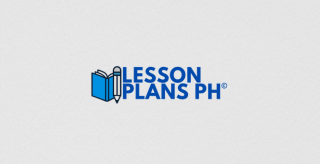DAILY LESSON LOG in PHILIPPINE POLITICS & GOVERNANCE 12 (1st Quarter)
I. Objectives:
LC: Identify the basic tenets of major political ideologies (i.e., liberalism, socialism, conservatism, etc.) HUMSS_PG12-Ib-c-6
At the end of the lesson, the learners should be able to:
- Define and identify the basic tenets of major political ideologies.
- Recognize how ideologies influence political decisions and social movements.
- Reflect on how ideologies shape personal and societal beliefs.
II. Content: The basic tenets and characteristics of political ideologies
III. Learning Resources:
- SHS PPG Teacher’s Guide
- Learner’s Module – Pages 24–36
- Textbook: Philippine Politics and Governance by Tabajen & Pulma
- YouTube: “Political Ideologies Explained”
- Political Typology Quiz (Modified from Pew Research Center)
IV. Procedures:
A. Reviewing previous lesson or presenting the new lesson:
- Activity: Timed Pair Review
- Students recall and summarize previous topics (Politics, Political Science, Government, Governance)
B. Establishing a purpose for the lesson:
- “Today, we will explore different political ideologies. Understanding them will help us see how leaders and citizens make decisions based on belief systems.”
C. Presenting illustrative examples/instances of the lesson:
- Play: “Political Ideologies Explained” video
- Guide Questions:
- How do people acquire political beliefs?
- How can these beliefs affect decisions and actions?
D. Discussing new concepts and practicing new skills #1:
- Activity: “Mix and Match”
- Students match phrases to definitions of:
- Ideology
- Political Ideology
- Characteristics of ideology (action-oriented, worldview, etc.)
E. Discussing new concepts and new skills #2:
- PowerPoint Discussion: Characteristics of Ideologies
- Key points:
- Mobilize people
- Provide explanation and direction
- Form identity and belonging
- Game: Jumbled Letters – Guess ideology terms (e.g., LIBERALISM, SOCIALISM)
F. Developing mastery (guides formative assessment):
- Activity: “One-Sentence Summary”
- Students write one sentence each for:
- What is an ideology?
- Why are political ideologies important?
G. Making generalizations and abstractions about the lesson:
- Activity: DYAD Talk
- Discuss the quote: “Ideology is a belief system with an inadequate basis in reality.” – Martin Amis
- Share how their understanding of ideology has changed
H. Finding practical applications of concepts and skills in daily living:
- Ask:
- “How do your parents’ views on rules reflect different ideologies?”
- “Have you ever disagreed with someone politically? How did you handle it?”
I. Evaluation of Learning:
- Worksheet: Fill-in-the-blank using word bank
- Topics include:
- Ideology
- Liberalism
- Conservatism
- Socialism
- Fascism
- Anarchism
- Political Ideology
- Belief System
- Government
- Change
- Answer Key: Ideology, Anarchism, Liberalism, Conservatism, Fascism, Belief System, Socialism, Political Ideology, Government, Change
J. Additional activities for application or remediation:
- Research Task: Choose one ideology and research its origin, core belief, and example leader/party
- Role-Play Prep: Prepare for group role-play on assigned ideology
(alert-passed) This lesson plan promotes political literacy, critical thinking, and respectful discourse. Teachers are encouraged to use current events and student reflections to deepen understanding.
Share to other apps

.png)

